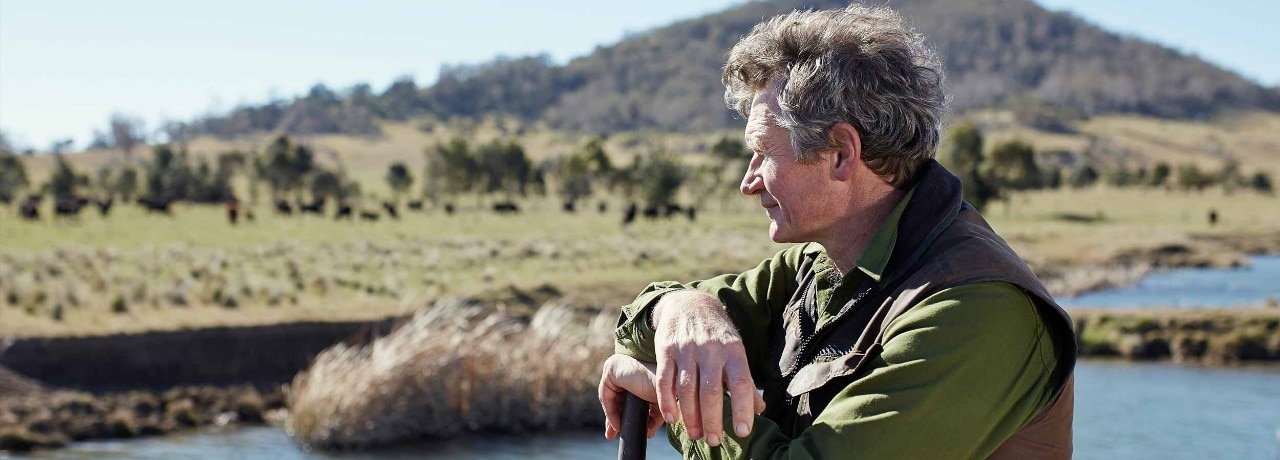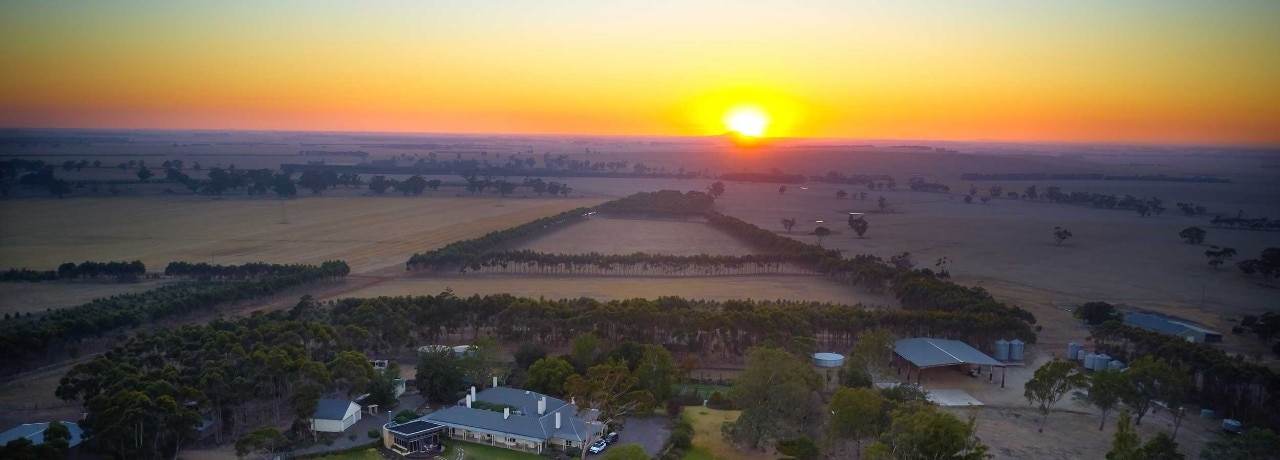Resources and natural capital | Approach and reporting - NAB
What is natural capital?
Natural capital is the practical value we derive from a healthy environment. It can be depleted or topped up, depending on what we do. Natural capital links sustainability and profitability because a healthy business, and a healthy economy, depend on a healthy environment.
The importance of natural capital
When you invest in any business, you need to know that it can make money and be profitable in the long-term. If a business’ profit depends on the quality of the soil, water and air, that natural capital should be recognised in business decisions.
We don’t tell our customers how to run their businesses. But at NAB, we believe customers who are taking care of their natural capital are good for our business. We know that their investment in the quality of their soil, water and air makes their business more valuable and more productive. And we know it makes our investment in them safer.
That’s not just sustainable business. It’s good business.
Our focus on natural capital
In 2011 we became the first Australian bank to sign the Natural Capital Declaration – a global statement recognising that natural capital poses significant potential risks and opportunities to the finance sector.
Since then, we’ve worked on a natural capital approach, which is built on understanding our impacts and dependencies on natural capital from our operations and in our supply chains, as well as those of our customers.
We’re initially focusing on our agribusiness customers. However, our commitment to natural capital extends across our entire business.
We are a member of the Taskforce on Nature-related Financial Disclosures (TNFD) Forum. We have undertaken a range of activities to further our understanding of TNFD and implications for our business. This includes:
- Taking part in the Australian Government’s TNFD education and awareness raising program.
- Undertaking an assessment of nature-related impacts and dependencies.
- Since 2024 we have reported our nature and biodiversity-related activities using the TNFD pillars of governance, strategy, risk management, and metrics and targets.
Working with our customers
We’re supporting customers to make investments that improve nature-related outcomes, for example, through our NAB Green Finance for Agribusiness loans and sustainability-linked loans (SLLs). Our NAB Green Finance for Agribusiness loans offer eligible customers finance for investments that improve nature-related outcomes, including reducing carbon emissions in farming production, building resilience against drought, improving land, biodiversity and water quality, and increasing carbon sequestration on land.
We also provide SLLs which incentivise the achievement of predetermined sustainability performance objectives. For example, our SLLs can incentivise clients to mitigate deforestation, which is a critical component of protecting biodiversity.
Read more about how we’re supporting customers to decarbonise and build climate resilience in our annual reporting suite.
Working with our research partners
For more than a decade we’ve supported research to understand the relationship between our business and natural capital.
We’ve commissioned numerous projects with research organisations, such as the CSIRO, universities, Cooperative Research Centres, Trucost, and technology providers, to understand our impacts and dependencies and develop methodologies that allow us to consider natural capital in our business.
In 2025, we engaged on nature-related matters through key industry dialogues, including:
- Australian Land Conservation Alliance (ALCA) annual conference.
- Nature Positive – Business Leaders Ambition Dialogue.
- Australian Climate and Biodiversity Foundation Nature Positive Roundtable.
- Australian Sustainability Framework Initiative Natural Capital Advisory Group.
- Responsible Investment Association of Australasia’s Nature Working Group.
- Business Council for Sustainable Development Australia.
- UNEP-FI.
- Australian Agricultural Sustainability Framework.
- Sponsorship of the Australian Land Conservation Alliance (ALCA) annual conference.
Environmental impact
By minimising our waste and reducing consumption, we can reduce our environmental impact.
Our direct environmental impact is primarily a result of building occupancy, equipment use (particularly in our data centres) and travel. The key environmental impacts of these activities are resource use such as paper, the generation of carbon emissions and waste. Where we can, we look for opportunities to avoid, reduce, re-use and recycle.
How we’re using less resources
We’re focused on ensuring our buildings are designed, built and operated to best practice standards.
We’re continually making improvements to the way we operate our buildings and the equipment we select to reduce the environmental impact of our business activities.
Read more about our environmental performance.
Nature-related metrics and targets
Since 2022, we’ve prepared integrated annual reports encompassing our environmental performance. The data we collect regarding our direct impact on nature is provided in the table below.
| Driver of nature change | Direct impact measure |
| Climate change | Scope 1 and 2 GHG emissions |
| Land freshwater/ocean use change | Water use (potable water withdrawal) |
| Resource use/replenishment | Gross energy use Office paper use Vehicle fuels |
| Waste | Waste to landfill |
Further information about nature and environmental performance is contained in the 2025 Sustainability Data Pack.
Explore sustainability at NAB
Climate change
We’re taking steps to address climate change.
Environmental approach
Learn about how we’re taking a strategic and sustainable approach to managing our business.
Environmental products and services
Learn about the products and services we offer to help customers decarbonise and improve environmental outcomes.
Contact us
Use our Customer Support Tool
Solve problems quickly online with our easy-to-follow guides. Simply select a topic and we’ll direct you to the information you need.
Message us online
NAB Messaging is available to answer your questions in a secure environment.
- Log into NAB Internet Banking or the NAB app.
- Select the NAB Messaging icon.
- Select Start Conversation.
Stay in touch on social media
Connect with our social profiles online.
Important information
Apologies but the Important Information section you are trying to view is not displaying properly at the moment. Please refresh the page or try again later.




